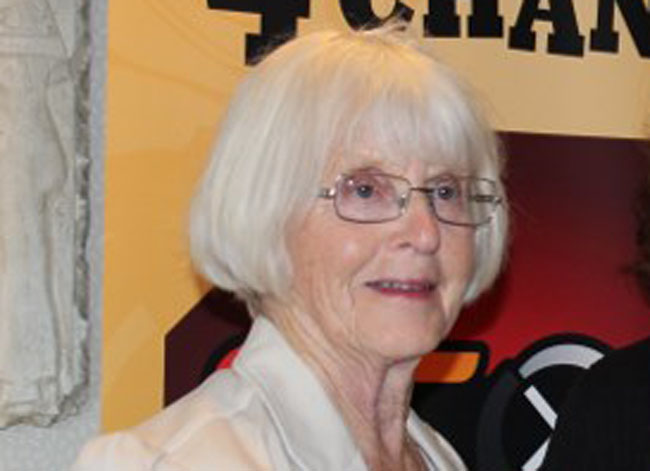Alice Corbiere supporting women’s issues

By Margaret Hele
TORONTO –Alice Corbiere, a citizen of Garden River First Nation, is one of two alternate delegates to the board of directors of the Ontario Native Women’s Association.
Corbiere, a member of a local ONWA group — Anishinaabekwe of the North Shore – attended September’s annual general assembly, which featured workshops on Child and Youth Services and Ontario Urban and Rural First Nations.
Dr. Dawn Harvard, OWNA president, delivered an opening address relating to the conditions and treatment that women are subjected to in today’s society and OWNA’s efforts to better the lives of women and their children.
Delegates heard that children are still being removed from their families, communities, and cultures, which creates a void in their lives and tends to set them adrift in society. Families need assistance to enable children to remain with their families or extended families.
Personal stories revealed how male opinions still tend to prevail in First Nations communities.
OWNA continues to press for a national inquiry for missing and murdered aboriginal women, staging vigils across Canada and distributing and delivering petitions to the federal government.
Several of the women in attendance have had personal experience with a family member or friend missing or murdered.
The organization is promoting the first anniversary of Talk4Healing, A Help Line for Aboriginal Women, a first of its kind in Ontario. Talk4Healing has helped over 1,500 Aboriginal women start their journey to healing by providing a culturally safe and appropriate resource that Aboriginal women and their families can call for help.
“Simply put, we help women and their families who need support,” explains Robin Haliuk, Talk4Healing Coordinator. “As we have been taught through our traditional teachings, the Medicine Wheel provides powerful guidance in four key areas: Spiritual, Emotional, Physical and Mental. Talk4Healing follows in the traditional footsteps of our grandmothers and grandfathers by incorporating these teachings into our services, which is precisely what makes this help line so unique and so appropriately suited for Aboriginal women.”
Before the creation of Talk4Healing, many Aboriginal women living in Northern Ontario communities had nowhere to turn to for help when they needed it. Geographical isolation and the lack of services that is often the reality in small, northern communities acted as a barrier to healing. Now, help is only a phone call away.
“Traditionally, Aboriginal women have turned to their grandmothers, mothers, sisters, and aunts for support, but not all women are comfortable talking about their personal problems with relatives or friends,” says Haliuk. “That’s where Talk4Healing comes in. “We have trained Aboriginal counsellors available 24 hours a day, 7 days a week, who are empathetic, understanding, and ready to address the unique needs to Aboriginal women.”
Haliuk says that before Talk4Healing came to be, many Aboriginal women were suffering in silence. Having an Aboriginal specific help line to call for help, whether it be for crisis support, service referrals, telephone counselling, or just emotional support; has been a much needed and long-awaited service.
“We’ve received a lot of positive feedback from our callers who are so grateful for finally having somewhere to turn when they need help,” she says. “We typically hear a great sense of relief when our callers realize they are talking to an Aboriginal woman on the other end of the line. Now that Talk4Healing is here, it’s hard to imagine a time when this service didn’t exist. I know we’re making a huge difference in the lives of Aboriginal women and their families in Northern Ontario.”
The Talk4Healing service area includes all Aboriginal women and their families living in Northern Ontario from the Manitoba border all the way to the Muskokas. To begin your journey to healing, call the toll-free number: 1-855-554-HEAL. For more information, visit www.talk4healing.com.


